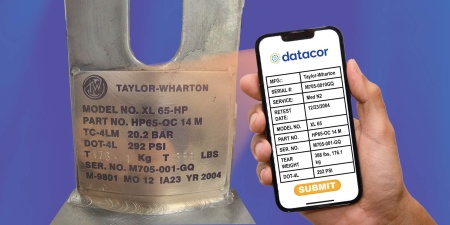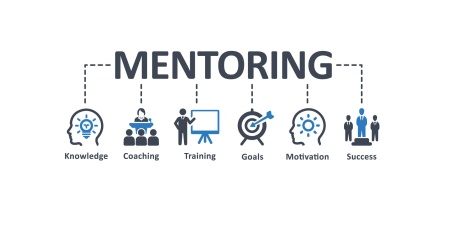“My greatest strength is creating relationships.”
“My customers buy from me because they trust me.”
“I am in sales because I love building relationships.”
Sound familiar?
Relationship selling will always be a critical capability; after all, people buy from people. In fact, most salespeople would define their relationship skills as their most valued asset; even more important than their hunting, qualifying, and closing. When asked on a job interview, the most common response to interview questions about sales capability would be one of the answers above. Take it one step further and relationship selling has become a common excuse for pushing back on sales process training and utilizing CRM technology.
“I am a Relationship Salesperson”
While the ability to develop relationships has always been important in sales, there is debate over what a “great relationship” looks like. If you search for a clear definition of a great relationship, you find words like mutual trust, openness, communication, sharing and compromise.
Unfortunately, the relationships that most salespeople have with their prospective customers lack these critical factors. Rather than being defined by mutual trust or bilateral communication, the relationships are transactional, based on quickly responding to any request made of them by a prospect. Whether the prospect is asking for an onsite visit, demos, references, or pricing, most salespeople will deliver without hesitation. The best-case scenario is the prospect reciprocates with a note of appreciation for delivering while the worst-case is the prospect disappears.
Delivering on all pre-sales requests has become the baseline for most salespeople who view themselves as relationship driven. Whether resulting in an actual sale or not, the sense of accomplishment is in delivering for a prospect rather than closing. In fact, most salespeople pay very little attention to the percentage of deals that fall apart. For this reason, many CRM applications are bogged down with opportunities that have aged far beyond the original close date and have little traction and possibility of closing beyond the delivery of the proposal.
“All Salespeople Like to Win”
While all salespeople want to cater to their prospects for the purpose of winning the business, issues arise from a lack of attention to the losses and the time wasted on opportunities that don’t close. Many salespeople reading this article would argue that it’s their job to fulfill requests made of them by a prospective client. While this is true, if the relationship is so strong, what are the salespeople asking for – and getting – in return? Anything less than equal reciprocity on the part of the prospect would render the relationship conditional, with the salesperson acting as a resource rather than a partner.
The Proof is in the Pipeline
If there is any doubt regarding the challenges with these relationships, the proof can be found when doing pipeline and opportunity reviews. During these internal reviews, the salespeople whose relationships are defined by one-sided delivery will frequently pushback on sales coaching – especially when it requires them to ask for additional qualifying information prior to sending a quote or other requested information. It’s not for a lack of understanding the sales process and training material; in many cases, the salespeople are excellent at role playing and demonstrating incredible subject matter comprehension. Execution becomes a problem when there is a fear of upsetting the prospect and creating pushback when using the sales techniques learned.
For example, when asked if they qualified a prospect, inquired about budgetary constraints, other decision makers, and competition, many salespeople will voice the concern of frustrating their main contact with these questions. This level of discomfort wouldn’t exist if the salespeople had the self-esteem and confidence to develop trusted relationships.
How Do I Develop a Team of Salespeople Who Create Trusted Relationships?
While it is possible to train a salesperson to be more assertive in their relationships with prospects, it can be a futile effort when fighting against ingrained self-limiting beliefs. The reality is there will be existing team members who simply lack in the ability to develop trusted relationships with their prospects. While these people may be an important long-term part of the team, any attempt to train and change them may lead to frustration. This is where it is critical for sales management to introduce checks-and-balances in the form of coaching routines. These include the following:
1. Pipeline reviews focusing on early and mid-stage opportunities in addition to the closeable ones.
2. Frequent deal reviews with special attention paid to one-sided relationships.
3. Pre-call planning sessions for upcoming meetings, focused on the rep’s plan for reciprocation.
Implementing routines and internal discussions will help reduce the risk that they deliver unilaterally without a process for qualifying. Additionally, reviewing opportunities prior to site visits, presentations and final proposals will help to ensure a plan for gaining reciprocity in the form of information and access.
Utilizing Best Practices for Recruiting and Hiring
Beyond training the existing team and creating coaching routines, the ultimate solution to the relationship challenge is to hire salespeople who view themselves on equal footing with their prospects. When recruiting, it is critical to assess and evaluate candidates for their ability to create deeper relationships, ask tough questions, and challenge their prospects. Interestingly, years of experience, number of contacts and expertise are not indicative of relationship skills. Independent of these factors, are critical competencies that are must-haves. Some important questions to ask yourself when hiring a candidate are the following:
- Will they ask difficult qualifying questions on a sales call?
- Can they posture themselves in a selling situation; even when selling to high-level stakeholders?
- Do they have a high need for approval and low tolerance for conflict which will get in their way?
- Are they good at negotiating a win-win throughout the sales cycle?
Most importantly, did the candidate confidently ask great qualifying and challenging questions throughout the entire interview process? Do they pride themselves on delivering for prospects or do they place the focus on their qualifying and closing skills?
A Final word on Relationship Selling
We would never want to discourage our salespeople from developing relationships based on responsiveness, reliability, and personal connection. However, we do need to coach them to build reciprocal relationships where they negotiate for something in return other than appreciation and hope.









